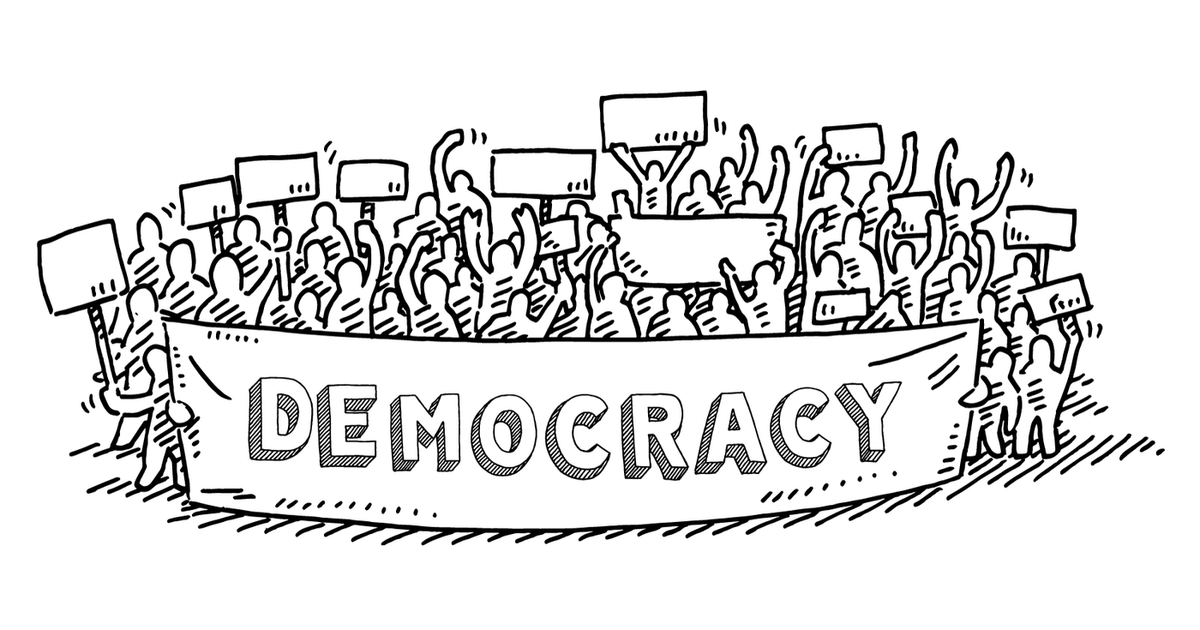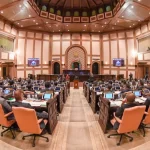A recent survey conducted by the Washington-based Pew Research Center (PRC) has illuminated concerning trends regarding global democracy. The study, spanning 24 countries and encompassing 30,861 respondents, reveals a sobering decline in democratic values between 2017 and 2023, with a notable surge in preference for authoritarianism, particularly evident in some Middle-Income nations, including India.
Support for authoritarian governance, where power is concentrated in the hands of a strong leader, has witnessed a notable upswing, with an average of 31% of respondents globally expressing support for such a model. Perhaps most strikingly, the highest endorsement of authoritarianism was recorded in India, where a staggering 85% of respondents expressed approval. Similarly, Indonesia, Mexico, Kenya, South Africa, Brazil, the United States, and the United Kingdom also exhibited varying degrees of support for this model.
The allure of a “Strong Leader Syndrome” has permeated societies across continents, with an increasing number of individuals favoring governance models where decisions are made unilaterally, without interference from legislative or judicial bodies. This sentiment has been particularly pronounced in Latin American nations, as well as in Kenya, India, South Korea, Germany, and Poland. Interestingly, the survey notes that support for strong leadership tends to be more prevalent among individuals with lower levels of education and income, while those leaning towards the ideological Right are often more inclined to endorse authoritarian rule.
Furthermore, the survey sheds light on the surprising resonance of military rule, with a significant proportion of respondents across Middle-Income countries expressing favorable views towards this governance model. Despite less enthusiasm in high-income nations, a noteworthy minority in Greece, Japan, and the United Kingdom, and even in the United States, perceive military rule as a viable system.
The erosion of confidence in Representative Democracy is another troubling revelation of the survey. While over 50% of respondents across the surveyed countries still regard Representative Democracy as an ideal form of government, there has been a discernible decline in support since 2017. Criticism of the functioning of Representative Democracies centers on the perceived inefficacy of elected representatives and the disconnect between political parties and the populace.
Furthermore, disillusionment with political parties as representatives of the people is palpable, with a significant portion of respondents expressing dissatisfaction with the representation provided by political entities. This disenchantment is underscored by the perception that elected officials are out of touch with the lives of ordinary citizens, exacerbating feelings of alienation and frustration.
The survey also highlights the growing demand for diverse representation in political leadership, with many advocating for increased participation of women, individuals from disadvantaged backgrounds, and young adults in governance. However, there are mixed views on the inclusion of businesspeople and labor union leaders in political offices, with religiosity emerging as a favored criterion in Middle-Income countries.
Moreover, there is a notable shift towards endorsing expert-led decision-making over elected officials, signaling a broader skepticism towards traditional democratic institutions. This sentiment is fueled by the perception that elected officials prioritize their own interests over those of the populace, further undermining confidence in democratic processes.
In the United Kingdom, the erosion of democratic norms has been particularly pronounced, exacerbated by geopolitical tensions and domestic policy shifts. The government’s introduction of stringent measures targeting organizations deemed to undermine the country’s democratic fabric reflects growing concerns over internal divisions and external threats. Critics argue that such measures risk stifling dissent and curtailing civil liberties, posing profound challenges to the principles of liberal democracy.
As democratic values face increasing scrutiny and authoritarian tendencies gain traction, the global community is confronted with pressing questions regarding the future of governance and civic participation. While the survey offers valuable insights into prevailing attitudes towards democracy, it also underscores the imperative for concerted efforts to safeguard democratic institutions and uphold the principles of freedom, accountability, and inclusivity in the face of mounting challenges. From wire services.













